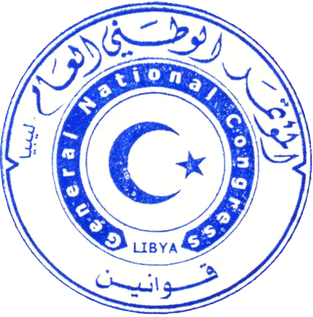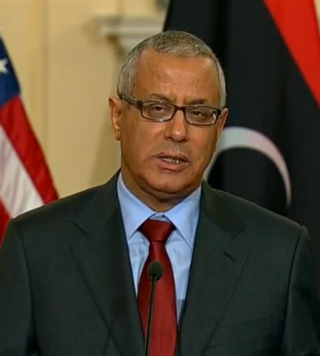
Libya, officially the State of Libya, is a country in the Maghreb region of North Africa. Libya borders the Mediterranean Sea to the north, Egypt to the east, Sudan to the southeast, Chad to the south, Niger to the southwest, Algeria to the west, and Tunisia to the northwest, as well as maritime borders with Greece, Italy and Malta to the north. Libya comprises three historical regions: Tripolitania, Fezzan, and Cyrenaica. With an area of almost 1.8 million km2 (700,000 sq mi), it is the fourth-largest country in Africa and the Arab world, and the 16th-largest in the world. Libya claims 32,000 square kilometres of southeastern Algeria, south of the Libyan town of Ghat. The country's official religion is Islam, with 96.6% of the Libyan population being Sunni Muslims. The official language of Libya is Arabic, with vernacular Libyan Arabic being spoken most widely. The majority of Libya's population is Arab. The largest city and capital, Tripoli, is located in northwestern Libya and contains over a million of Libya's seven million people.

The politics of Libya has been in an uncertain state since the collapse of the Libyan Arab Jamahiriya in 2011 and a recent civil war and various jihadists and tribal elements controlling parts of the country.

Sheikh Tamim bin Hamad bin Khalifa Al Thani is Emir of Qatar, reigning since 2013.

The Cabinet of Libya serves as the leadership for the executive branch of the government of Libya.

Following the end of the First Libyan Civil War, which overthrew Muammar Gaddafi, there was violence involving various militias and the new state security forces. This violence has escalated into the Second Libyan Civil War (2014–2020).

The General National Congress or General National Council was the legislative authority of Libya for two years following the end of the First Libyan Civil War. It was elected by popular vote on 7 July 2012, and took power from the National Transitional Council on 8 August.

Ali Zeidan is a former Prime Minister of Libya. He was appointed by the General National Congress on 14 October 2012, and took office on 14 November after Congress approved his cabinet nominees. Prior to the Libyan Civil War, Zeidan was a Geneva-based human rights lawyer. According to the BBC, he is considered by some local observers as a strong-minded liberal. He was ousted by the parliament committee and fled from Libya on 14 March 2014. However, he told a press conference in Rabat, Morocco, that the ousting was invalid.

The cabinet was selected by Prime Minister Ali Zeidan on 30 October 2012 and was approved by the General National Congress on 31 October 2012 together with approving Zidan as Libya's first post-war Prime Minister. The cabinet is composed of the following ministers: Two women were selected to cabinet, and select ministries went to political independents who were not associated with any party.

Mohamed Abdelaziz is a Libyan politician who served as the foreign minister of and chairman of the Arab League council of ministers from January 2013 to August 2014.
Salah Bashir Marghani is a Libyan jurist, and the former justice minister in the post-civil war government of Libya. He was part of Prime Minister Ali Zeidan's initial cabinet and took office on 14 November 2012.

Ahmed Omar Maiteeg is a Libyan businessman and politician originally from Misrata, who was elected Prime Minister of Libya in May 2014. He was appointed head of the transitional government, and asked to form his cabinet and present it to the GNC for a confidence vote within 15 days.

The Libyan civil war (2014–2020), also more commonly known as the Second Libyan Civil War, was a multilateral civil war which was fought in Libya between a number of armed groups, but mainly the House of Representatives (HoR) and the Government of National Accord (GNA), for six years from 2014 to 2020.

The Libyan House of Representatives is the legislature of Libya resulting from the 2014 Libyan parliamentary election, which had an 18% turnout. On 4 August 2014, in the course of the progressing August 2014 Islamist coup in the capital Tripoli in the context of the Libyan Civil War, the House of Representatives relocated itself to Tobruk in the far east of Libya. Several HoR sessions were held in Tripoli in May 2019 while Tripoli was under armed attack, electing an Interim Speaker for 45 days. Between 2014 and 2021, the House of Representatives supported the Tobruk-based government led by Abdullah al-Thani before supporting the incumbent Government of National Unity led by Abdul Hamid Dbeibeh. In September 2021, the House of Representatives passed a no-confidence motion against the interim GNU government and later appointed a rival Government of National Stability (GNS).

Abdullah al-Theni is a Libyan politician who became prime minister of the House of Representatives of Libya on 11 March 2014, when he took over in an interim capacity after the dismissal of Ali Zeidan. He was previously the defence minister in the government of Zeidan.

The National Salvation Government was a government body formed by politicians from the General National Congress's blocs that lost the June 2014 elections in Libya. The NSG was led by Khalifa al-Ghawil. The term Libya Dawn Coalition was used to refer to the armed groups and the wider political movement supporting the NSG. The NSG was one of the major sides in the Second Libyan Civil War from its formation August 2014 until its dissolution in April 2016.

Fayez Mustafa al-Sarraj is a Libyan politician who served as the Chairman of the Presidential Council of Libya and Head of Government of the Government of National Accord from 2016 to 2021, which was formed on 17 December 2015 under the Libyan Political Agreement. He has been a member of the Parliament of Tripoli.

The Government of National Accord was an interim government for Libya that was formed under the terms of the Libyan Political Agreement, a United Nations–led initiative, signed on 17 December 2015. The agreement was unanimously endorsed by the United Nations Security Council, which welcomed the formation of a Presidency Council for Libya and recognized the Government of National Accord as the sole legitimate executive authority in Libya. On 31 December 2015, Chairman of the Libyan House of Representatives, Aguila Saleh Issa declared his support for the Libyan Political Agreement. The General National Congress has criticized the GNA on multiple fronts as biased in favor of its rival parliament the House of Representatives.
This is a detailed timeline of the Libyan civil war (2014–2020) which lasted from 2014 to 2020.

The Second Cabinet of Abdullah Al-Thani was approved on 22 September 2014 by Libya's democratically elected House of Representatives. The Libyan Supreme Court ruled on 6 November 2014 that the cabinet was "unconstitutional". Prime Minister al-Thani and his government offered their resignation on 13 September 2020 in response to the 2020 Libyan protests. In the context of the Libyan Civil War, the Second Al-Thani cabinet was generally referred to as the Tobruk government.

The Government of National Unity is a provisional government for Libya formed on 10 March 2021 to unify the rival Government of National Accord based in Tripoli and the Second Al-Thani Cabinet, based in Tobruk. Abdul Hamid Dbeibeh is the Prime Minister of the unity government and was selected in the Libyan Political Dialogue Forum on 5 February 2021. It is de facto backed by the governments of Turkey, Qatar, Algeria, and Pakistan.













